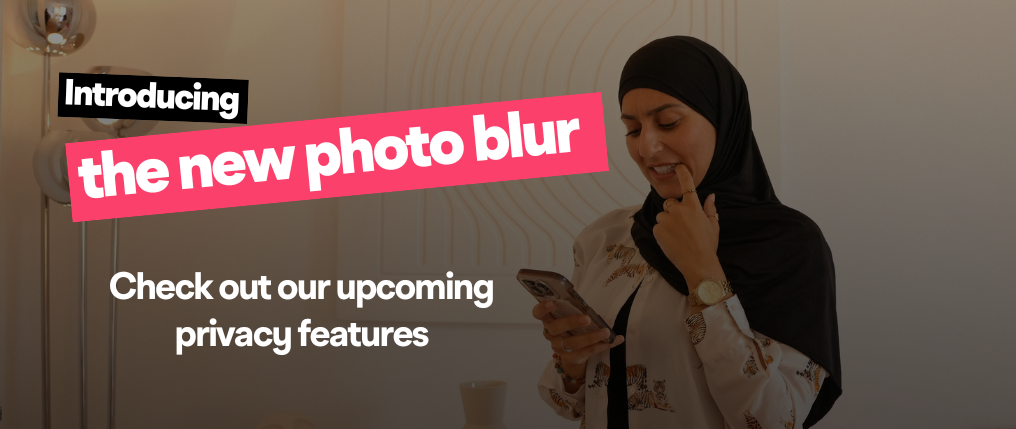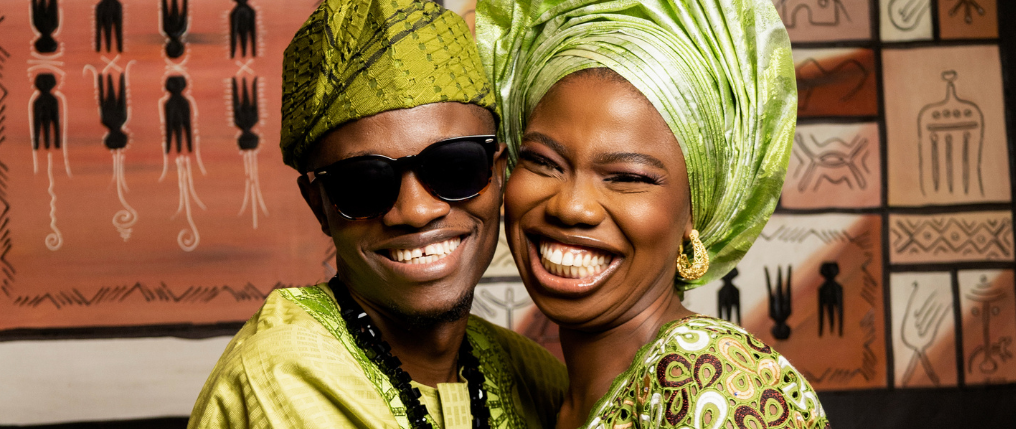
Online Dating: A Muslim Guide on How to Be Safe
March 5, 2012

A recent study by match.com found that 1 in 6 couples that got married in 2010 met on a matchmaking site. This is not surprising considering online dating and matchmaking websites now make up a $4 billion business worldwide.
Their increased popularity over the last decade is proof that matchmaking sites will continue to grow and couples will increasingly meet for the first time through the Internet. This phenomenon is also apparent in the Muslim community. A Google search of “Muslim matchmaking” calls up over 400,000 sites. With more Muslims turning to the Internet to find a spouse, there needs to be a discussion of the positive and negative aspects of meeting people online.


Looking for your soulmate?
You won’t find your soulmate on this blog post but you might find them on Muzz - the world’s biggest Muslim dating and marriage app.

Accessibility
Muslim marriages have traditionally occurred with friends and family as the intermediaries, but now the Internet has become a viable option for bringing potential couples together. Matchmaking websites have removed the “personal” connections people have always relied on when finding a spouse. Individuals can post their own profiles of who they are and what they are looking for in spouse. Meeting individuals who have no connection to family and friends can be common and finding a spouse on one’s own has become a possibility.

The Internet has created a virtual network and provided accessibility to seek and meet Muslims from various regions of the world and of various origins. Online matchmaking sites have created a greater pool of people to meet and choose from; this is beneficial for new Muslims and those living in areas where there are few like-minded people, because meeting a potential spouse offline can be difficult if there is no social network established.
However, with the greater opportunity of meeting someone who lives in another city or even another country, the challenges of long distance relationships becomes more common. A person who is not willing to move to another region should make this point clear at the beginning of their interactions. However, for those who are interested and willing to move to where their potential spouse lives, they will need to meet offline as soon as they determine they have a connection. They will also need to meet in person often to see if their relationship can develop into a marriage, which requires both individuals and their families to make a commitment to travel.
Anonymity
The Internet makes it very easy to be anonymous; therefore creating an online profile can become the perfect opportunity to be someone different, someone better, someone more attractive, more wealthy, more educated, etc. The biggest complaint made about online matchmaking sites is that there is a lot of exaggeration and even deception.

Individuals can exaggerate or lie about everything from their age and profession to what they look like and where they are from. Some will even lie about their marital status.
Because of this the Internet makes it impossible to know whether the person you are communicating with online is a “real” person at all. People who are not serious about marriage may create profiles on matchmaking sites because they enjoy perusing people’s profiles and enjoy the “game” of meeting people and flirting online. For this reason, it is important that people who are serious about getting to know someone for marriage must move from the online setting to an offline meeting as quickly as possible.
Meeting in person is also the only way to confirm any initial compatibility that the individuals are feeling for each other as well as confirm their truthfulness and character.
The Prophet Muhammad advised, “When one of you asks for a woman in marriage, if he is able to look at what will induce him to marry her, he should do so.” (Abu Daoud) Prolonging an online relationship can be a problem because the “connection” could be based completely on false information, which will ultimately lead to major disappointment. Therefore, remaining exclusively online to establish and maintain relationships can become a complete waste of time and even a distraction from finding a true match. Seeking to meet in person and develop a relationship that will lead to marriage needs to be the intention.
Communication
For many people, meeting someone for the first time can be awkward because both people are usually seeking to impress one another and determine if they have a connection. Meeting a potential spouse online reduces the initial anxiety and nervousness when being introduced since it removes an element of vulnerability. When people “chat” online, the computer screen reduces any personal inhibition and it becomes much easier to impress the other person. The Internet lifts real world boundaries so people fall easier into flirtatious and immodest behaviour, become prone to saying things online that they normally wouldn’t say to someone in person, or chat for longer periods of time than they normally would with any individual.

Online mixing also removes any exclusivity, which is why chatting with numerous people at the same time begins to resemble a season of “The Bachelor.” You can never be sure that you are the only person a potential spouse is chatting with unless you ask them upfront, nor determine the seriousness of the relationship if conversations continue only online.
Another obstacle with continued online communication is that real interpersonal skills are lost because subtle cues like tone of voice and body language cannot be heard or seen. Ultimately, determining if there is a real connection can only happen once the individuals actually meet in person. Communicating in person is vital to creating a real relationship through verbal communication as the couple will engage in the art of listening and speaking.
Privacy
Just as we live with boundaries in real life, we must maintain boundaries online. Safety precautions should be taken by everyone who posts a profile on a matchmaking site to ensure their privacy. Sharing private information with someone on the other side of a screen can be dangerous, since it is accessible to global viewers.

Creating a separate email account for matchmaking correspondences would be beneficial in case a failed connection leads to one person stalking the other. In initial conversations with a person, you should be careful about how much personal information you share. It is best to withhold phone numbers, addresses of home, school and work places. This type of personal information should only be shared once the relationship proceeds to meeting in person and the character of the person has been determined.
The nature of using the Internet in private may also persuade individuals to hide an online relationship from their families, which will become an issue once the relationship moves offline. Secretive relationships are a major “red flag” and Islamically a serious problem. Individuals who refuse to meet offline or with family may be withholding something that may only be revealed by meeting offline. Therefore, caution should be taken if relationships remain online and are based on secrecy as these serve as “red flags” that honesty and trust have not been established, and this will lead to further problems in the relationship.
What To Do
Anyone who meets a potential spouse online must maintain appropriate Islamic and personal boundaries throughout the process. Be aware of the language you use when chatting with someone and try to speak in the same way you would in person. Stay in tune with your feelings: if something doesn’t feel right or if someone seems too good to be true, it is probably your intuition telling you something is wrong. If you are chatting seriously with someone online, you should share this with your parents so they are aware and can further encourage you to meet offline.
Taking time to know one another offline is critical in order to determine authentic compatibility beyond the Internet connection; this should be a goal when meeting someone online. Finally, making du`a’ and istikhara prayers for guidance to what is best in your search for a spouse is essential. Maintaining a connection to Allah and relying on Him will help give you clarity and inner peace when making the important life decision to marry or not marry someone.

As technology continues to change, how we as Muslims interact with one another will inevitably play a role in how people meet—we must be aware of the pitfalls and dangers of this medium.
Online matchmaking has become a beneficial resource for Muslims all over the world seeking a spouse. The diversity of people and the potential to meet has made the internet a very attractive way to find a compatible spouse. Yet, the nature of interpersonal relationships is that they cannot remain as cyber relationships. The human touch is still necessary when it comes to a relationship with another human being. The most successful pathway to developing a marital relationship will require disconnecting from the internet and connecting with people live.
Munira Lekovic Ezzeldine is the author of Before the Wedding: Questions for Muslims to Ask Before Getting Married. She received her Masters in Marriage and Family Counseling at California State University, Fullerton and a Bachelors in Economics from the University of California, Los Angeles. Ezzeldine is currently co-hosting an internet radio show, Family Connection, on One Legacy Radio. She has also written prolifically for Muslim publications, including two Islamic Studies textbooks for the Bureau of Islamic and Arabic Education.
Source: http://mideastposts.com/2011/03/22/online-dating-a-muslim-guide-on-how-to-be-safe/

